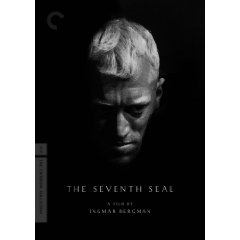
Starring: Barbara Stanwyck, Van Heflin, Lizabeth Scott & Kirk Douglas
Director: Lewis Milestone
In The Strange Love Of Martha Ivers, relationships formed in childhood lead to murder and obsessive love. The wealthy Martha Ivers (Stanwyck) is the prime mover of the small Pennsylvania town of Iverston. Martha lives in a huge mansion with her DA husband, Walter O'Neil (Douglas), an alcoholic weakling. No one knows just why Martha and Walter tolerate one another....but Sam Masterson (Heflin), an Iverstown boy who returns to town, may just have a clue. At least that's what Martha thinks when Sam asks Walter to intervene in the case of Toni Marachek (Scott), who has been unjustly imprisoned. It seems that, as a young boy, Sam was in the vicinity when Martha's rich aunt met with her untimely demise. What does Sam know? And what dark, horrible secret binds Martha and Walter together? Directed by Lewis Milestone, and based on John Patrick's Oscar-nominated original story, Love Lies Bleeding, this movie creates in Martha a unique and interesting, driven, obsessed, and spoiled character, but one not without sympathy. Stanwyck is outstanding as Martha, with her predatory smile and sharp, manicured nails. Douglas is surprisingly convincing as a lost, sad, weak man, who loves his wife, but is unable to gain her respect. This movie eventually lapsed into public domain and became a ubiquitous presence on cable television.
Something of a warm-up for the later The File on Thelma Jordon, The Strange Love of Martha Ivers mixes obsession, desire, delusion, ambition, and fear into a fascinating and enthralling tangle. Unusual for a movie of its period, it's fairly sophisticated in dealing with what is, at heart, a "sick" relationship between Martha Ivers (Stanwyck) and Walter O'Neil (Douglas), and demonstrating how easily a person (Sam Masterson [Heflin]) can get sucked into one. Fortunately for Masterson, he gets out in time, but it's a pretty narrow escape. Ivers is a remarkably tense film, although it's a tension that tends to linger beneath the surface; this is appropriate, as it reflects the turmoil and anxiety that lies under the calm surface of Ivers' and O'Neil's lives. That tension gives the film its life and strange vibrancy, and gives snap to even mundane scenes. There are some problems, notably the fact that the creators don't really seem to have a grasp on Masterson's motivation after the idea of blackmail enters the picture. Is he really interested in the money or is it a plot to get to the bottom of the Martha mystery? But the compelling, multi-layered performances of the stars (including Scott) more than make up for the few flaws in the script. (117 mins.)
My Rating: ***1/2











